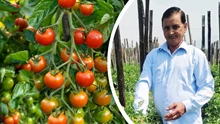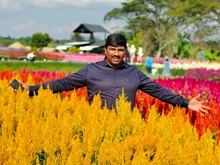
According to a recently published paper by researchers from the Alliance of Bioversity International and CIAT, agricultural diversity can be an important driver of food security, but the magnitude of the contribution is dependent on the local farming system's broader socioeconomic and biophysical characteristics.
In June 2022, they published their paper, "The benefits and trade-offs of agricultural diversity for food security in low- and middle-income countries: A review of existing knowledge and evidence," in the journal Global Food Security. The researchers discovered that agricultural diversity had a positive effect on food security in nearly two-thirds of all cases, but in about one-third of the relationships, there was no effect or the results were mixed.
Food security exists when all people have physical and economic access to sufficient, safe, and nutritious food that meets their dietary needs and food preferences for an active and healthy life, according to the Food and Agriculture Organization of the United Nations (FAO), whereas agricultural diversity includes the diversity of crop varieties, livestock breeds, fish species, and non-domesticated (wild) resources, including how they are processed.
The researchers' literature review revealed work done across the Global South or Lower-Middle-Income (LMIC) countries looking at the link between agricultural diversity and food security, providing a foundation for other researchers in the field to find collaborators or think about future research questions.
The lead author of the study, Katharina Waha, a Senior Research Scientist in the Global Food and Nutrition Security group at CSIRO in Brisbane, Australia, stated that there were 40 indices measuring the various measures and individual relationships. "We looked at all the combinations you could think of and how to quantify measure between the food security and diversity indicators," Waha explained. "In terms of negative health outcomes for individuals, all the literature on nutritional and health outcomes would say that not having that diversity or quality is the end result."
The researchers discovered that, while agricultural diversity can be beneficial to food security, it is not the only strategy available to promote food security. Diversification can be an appealing and effective option for improving agricultural practises and profits when it is also the cheapest strategy in terms of monetary and labour costs.
Elisabetta Gotor is an Alliance of Bioversity International and CIAT principal scientist and agricultural economist. She has 20 years of experience in economic analyses and evaluation of food system solutions at the intersection of agriculture, environment, and nutrition, with research focusing on the relationship between biodiversity-based interventions and poverty reduction, food security and nutrition, sustainable rural livelihoods, and resilience outcomes. According to Gotor, it is critical to investigate the relationship between the two concepts.
According to Gotor, it is critical to investigate the relationship between the two concepts. "I have a number of studies that show a link between agricultural diversity and food security," Gotor explained. On-farm diversity, according to Gotor, is "not only the driver, but the foundation of everything." Gotor stated that on-farm diversity must be preserved, and that the best way to do so is through daily use. "With a diverse system, you can deal with biotic and abiotic stresses, such as the effects of climate change," Gotor said, adding that genetic diversity is required to discover new crop varieties.
"It's critical to understand how we measure diversity and evaluate the other components of diversity," Gotor said. According to the researchers, holistic study designs that take into account the natural, social, and economic aspects of agricultural and food systems are best suited to represent interactions and understand the complex effects of diversification.











